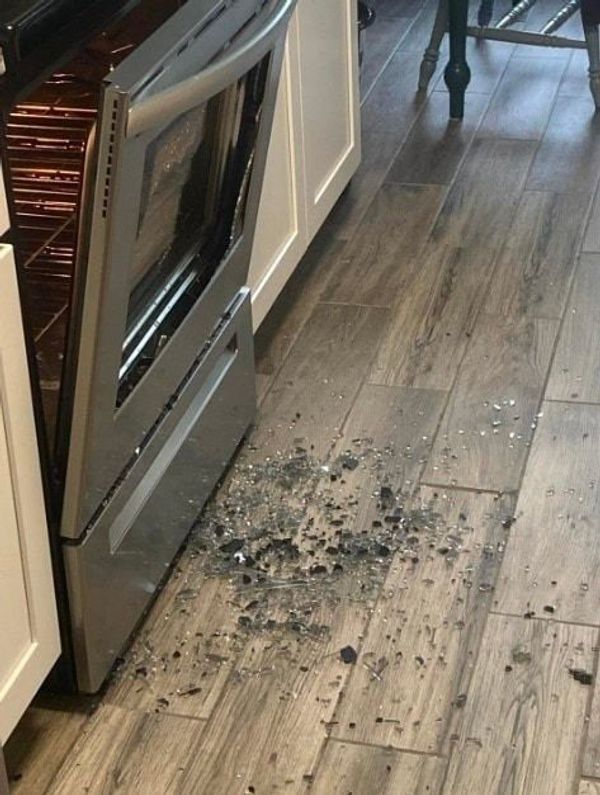Willie Mae Truesdale was startled by a loud explosion emanating from her kitchen. As she investigated the source, she was shocked to find the glass door of her oven shattered into pieces on the floor. “It was like something out of a movie,” she exclaimed. “Glass everywhere, and my oven wasn’t even turned on!”

Truesdale soon discovered that she wasn’t alone in experiencing this terrifying ordeal. Cheryl, a suburban mom, had a similar incident during the COVID-19 quarantine. Her brand new oven turned out to be 25 degrees off in temperature, causing her brownies to come out soggy. And to make matters worse, while running a self-cleaning cycle, the inner glass door of her oven exploded with a loud bang.
Michelle Wheat had an equally harrowing experience, with her three-year-old oven’s glass door shattering despite the appliance being turned off. Luckily, her young children were unharmed. What’s alarming is that these incidents are not isolated cases. Other brands, including Bosch and Frigidaire, have also been reported for having exploding glass oven doors. In fact, the Consumer Product Safety Commission has received approximately 450 reports since 2019.
What makes the situation even more distressing is the lack of support from the manufacturers. Despite her oven being under warranty, Truesdale had to pay out of pocket for a new door after Frigidaire’s technician blamed her family for the explosion. Cheryl, on the other hand, only received a replacement oven after NBC stepped in for her. Wheat, whose warranty had expired, had to pay $100 for the technician’s visit and an additional $314 to replace the shattered glass.
So why do oven doors shatter? According to Mark Meshulam, an expert from Chicago Window Expert, there are two possible scenarios. One involves soda lime glass, which is commonly used in oven doors but is not as tolerant of rapid heating and cooling cycles. The other type is borosilicate glass, known for its durability when exposed to extreme temperatures. Meshulam also suggests that nickel sulfide inclusions, minuscule flaws in the glass, may contribute to these explosions.
Despite these risks, Meshulam assures us that the self-cleaning feature in ovens is generally safe. He believes that microscopic chips and flaws in the glass are the main culprits for these incidents, even when the oven is not in use. However, what makes this possibility even more unsettling is that an explosion can occur long after the initial damage takes place.
To prevent such occurrences, it is important to take certain precautions at home. While some instances of damage may be beyond homeowners’ control, there are habits we can adopt to minimize the risk. For example, avoiding aggressive cleaning techniques and minimizing physical impacts on the glass can help prevent microscopic scratches and chips.
In conclusion, the problem of exploding glass oven doors is a cause for concern among homeowners. While manufacturers need to address this issue and provide better support to affected customers, adopting preventive measures can help minimize the risk. By being aware of the potential dangers and taking necessary precautions, we can continue to enjoy the convenience of ovens without living in fear of unexpected explosions.





